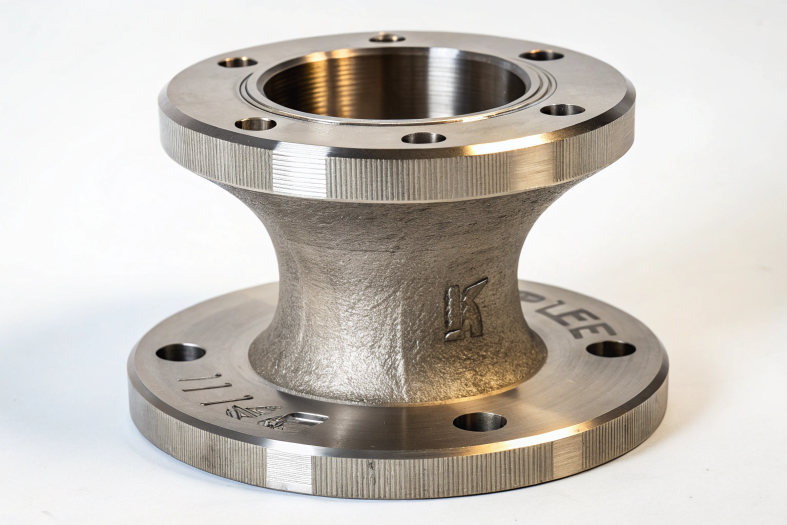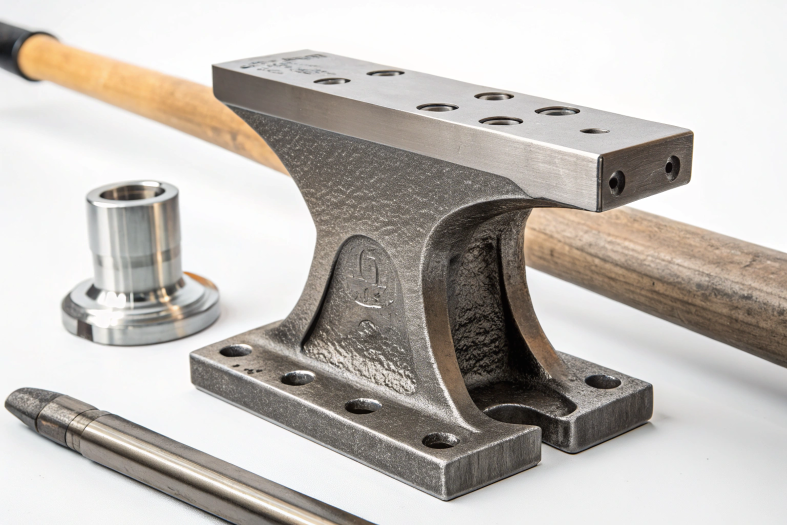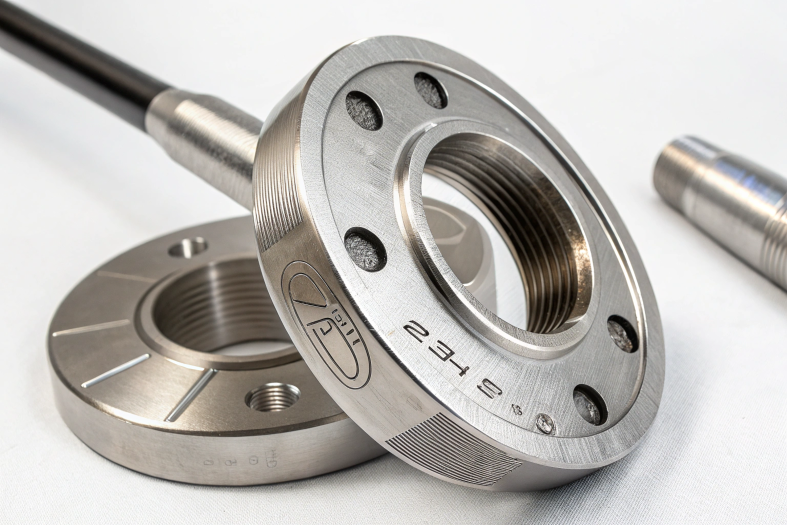Precision and efficiency are critical for industries striving to remain competitive in today's market. However, achieving these standards in manufacturing can be challenging without the right tools and processes. CNC precision machining addresses this need by offering unparalleled accuracy, consistency, and versatility, making it indispensable across various sectors.
Direct Answer:
CNC machining serves industries like automotive (engine parts), aerospace (turbine blades), medical (surgical tools), electronics (PCB housings), defense (firearm components), energy (drilling equipment), agriculture (tractor parts), construction (structural components), and consumer goods (luxury items).

Industries That Rely on CNC Precision Machining
1. Automotive Industry
The automotive industry relies on CNC machining for producing critical parts that demand high precision and durability.
- Applications:
- Engine components (e.g., pistons, cylinder heads).
- Transmission parts, gears, and differential housings.
- Brake systems, including calipers and rotors.
- Technical Details:
- Tolerances often range from ±0.01 mm to ±0.005 mm for engine components.
- Materials like aluminum alloys, cast iron, and high-strength steel are machined using multi-axis CNC systems.
- Operations include milling, turning, and drilling to achieve optimal surface finishes (e.g., Ra ≤ 0.8 μm).
2. Aerospace Industry
CNC machining is critical for the aerospace sector, where safety and performance depend on precise and reliable components.
- Applications:
- Aircraft fuselage parts, turbine blades, and landing gear components.
- Satellite components and rocket engine parts.
- Technical Details:
- Requires tight tolerances, typically within ±0.002 mm.
- Utilizes advanced materials like titanium alloys, Inconel, and carbon composites.
- 5-axis CNC machining is often employed for complex geometries, ensuring uniformity and minimizing weight.
3. Medical Industry
In the medical field, CNC machining ensures the accuracy and reliability of life-critical devices.
- Applications:
- Surgical instruments (e.g., scalpels, forceps).
- Orthopedic implants (e.g., hip and knee replacements).
- Medical devices (e.g., pacemaker housings).
- Technical Details:
- Achieves tolerances as tight as ±0.001 mm for implants.
- Common materials include stainless steel, cobalt-chromium alloys, and PEEK plastics.
- Techniques like micro-milling and EDM (Electrical Discharge Machining) are used for intricate designs.
4. Electronics Industry
The demand for compact and efficient electronic devices has driven the adoption of CNC machining for micro-scale components.
- Applications:
- Heat sinks, housings for PCBs (Printed Circuit Boards), and connectors.
- Technical Details:
- Machining processes like micro-drilling achieve hole diameters as small as 0.1 mm.
- Materials include aluminum, copper, and specialized thermoplastics.
- CNC routers are often employed to create intricate pathways with tolerances around ±0.02 mm.

5. Defense and Military Industry
The defense industry depends on CNC machining for producing high-precision and durable parts that perform under extreme conditions.
- Applications:
- Firearm components (e.g., barrels, receivers).
- Surveillance equipment housings and military vehicle parts.
- Technical Details:
- Uses materials like stainless steel, titanium, and composite metals.
- Operations involve deep hole drilling and precision turning with tolerances of ±0.005 mm.
- Hard turning and coating processes enhance wear resistance.
6. Energy Sector
CNC machining supports the energy sector by producing robust parts capable of withstanding extreme conditions.
- Applications:
- Components for oil drilling rigs, wind turbines, and solar panel mounts.
- Technical Details:
- Materials like stainless steel, Hastelloy, and duplex steels are commonly used.
- Machining processes include thread milling for precise fittings and surfacing for enhanced durability.
- Achieves tight tolerances to ensure leak-proof performance in oil and gas equipment.
7. Agricultural Industry
Agriculture benefits from CNC machining through customized and durable machinery components.
- Applications:
- Tractor parts, irrigation components, and food processing equipment.
- Technical Details:
- Common materials include low-carbon steel and durable polymers.
- CNC lathes and mills are used for high-strength parts with tolerances of ±0.1 mm.
- Surface treatments like powder coating improve corrosion resistance.
8. Construction Industry
The construction sector uses CNC machining to manufacture components for heavy-duty applications.
- Applications:
- Structural components, cutting tools, and heavy machinery parts.
- Technical Details:
- Produces large components with tolerances of ±0.05 mm.
- Materials such as alloy steel and cast iron are machined for strength and durability.
- CNC plasma cutting is often used for structural beams and plates.
9. Consumer Goods
Precision and aesthetics are vital in consumer goods, where CNC machining excels.
- Applications:
- Appliances, sporting goods, and luxury items.
- Technical Details:
- Uses multi-axis CNC machining for intricate designs with excellent finishes (Ra ≤ 0.4 μm).
- Materials include stainless steel, brass, and ABS plastics.
- Post-machining processes like polishing and anodizing enhance product appearance.
Emerging Industries Leveraging CNC Precision Machining
Robotics
- Applications:
- High-performance robot arms, joints, and components.
- Technical Details:
- Produces parts with tolerances of ±0.005 mm for precision movement.
- Uses lightweight materials like aluminum and carbon fiber.
Additive Manufacturing Support
- Applications:
- Hybrid manufacturing processes that refine 3D-printed parts.
- Technical Details:
- CNC machining enhances surface finish and dimensional accuracy of additive parts.
- Combines the strengths of both subtractive and additive techniques.

Conclusion
CNC precision machining is a transformative technology, enabling the production of components with exceptional accuracy and reliability. Across industries such as automotive, aerospace, and medical, it fulfills stringent requirements while adapting to new challenges. With advancements in materials and multi-axis capabilities, CNC machining continues to push the boundaries of innovation, shaping the future of manufacturing.
FAQ:
In which industries is a CNC machine used?
CNC machines are widely used across various industries due to their precision and versatility. Common industries include:
- Automotive: Engine parts, brake systems, and transmission components.
- Aerospace: Aircraft components, turbine blades, and landing gear.
- Medical: Surgical instruments, implants, and medical devices.
- Electronics: Circuit board housings and heat sinks.
- Energy: Oil and gas equipment, wind turbine parts.
What are industry uses for a CNC milling machine?
CNC milling machines are essential for industries requiring complex and precise components:
- Aerospace: Machining lightweight, high-strength components like fuselage parts.
- Medical: Producing intricate surgical tools and biocompatible implants.
- Consumer Goods: Crafting detailed and aesthetically pleasing parts for luxury items and appliances.
What are the 5 common types of CNC machines?
- CNC Milling Machines: Used for cutting, drilling, and shaping materials with rotating cutting tools.
- CNC Lathes: Spin the material while a stationary cutting tool removes material for symmetrical parts.
- CNC Grinding Machines: Achieve high-precision surface finishes and shape hardened materials.
- CNC Routers: Carve intricate designs in wood, plastic, and softer metals.
- CNC Plasma Cutters: Use a plasma torch to cut metals with high precision.
What are three industries that widely use CNC lathe machines and explain their benefits?
- Automotive Industry:
- Benefits: Produces highly precise components like gears, shafts, and bushings essential for vehicle safety and performance.
- Aerospace Industry:
- Benefits: Creates lightweight and symmetrical parts with tight tolerances for aircraft engines and landing gear.
- Medical Industry:
- Benefits: Ensures high precision and biocompatibility for implants and surgical instruments, critical for patient safety.


